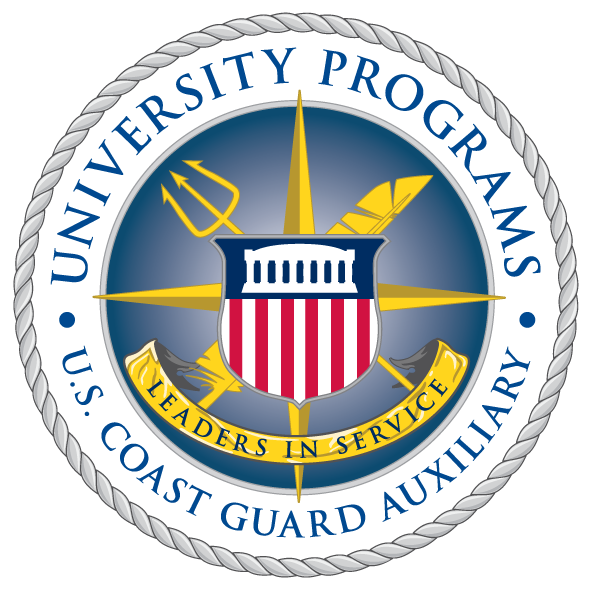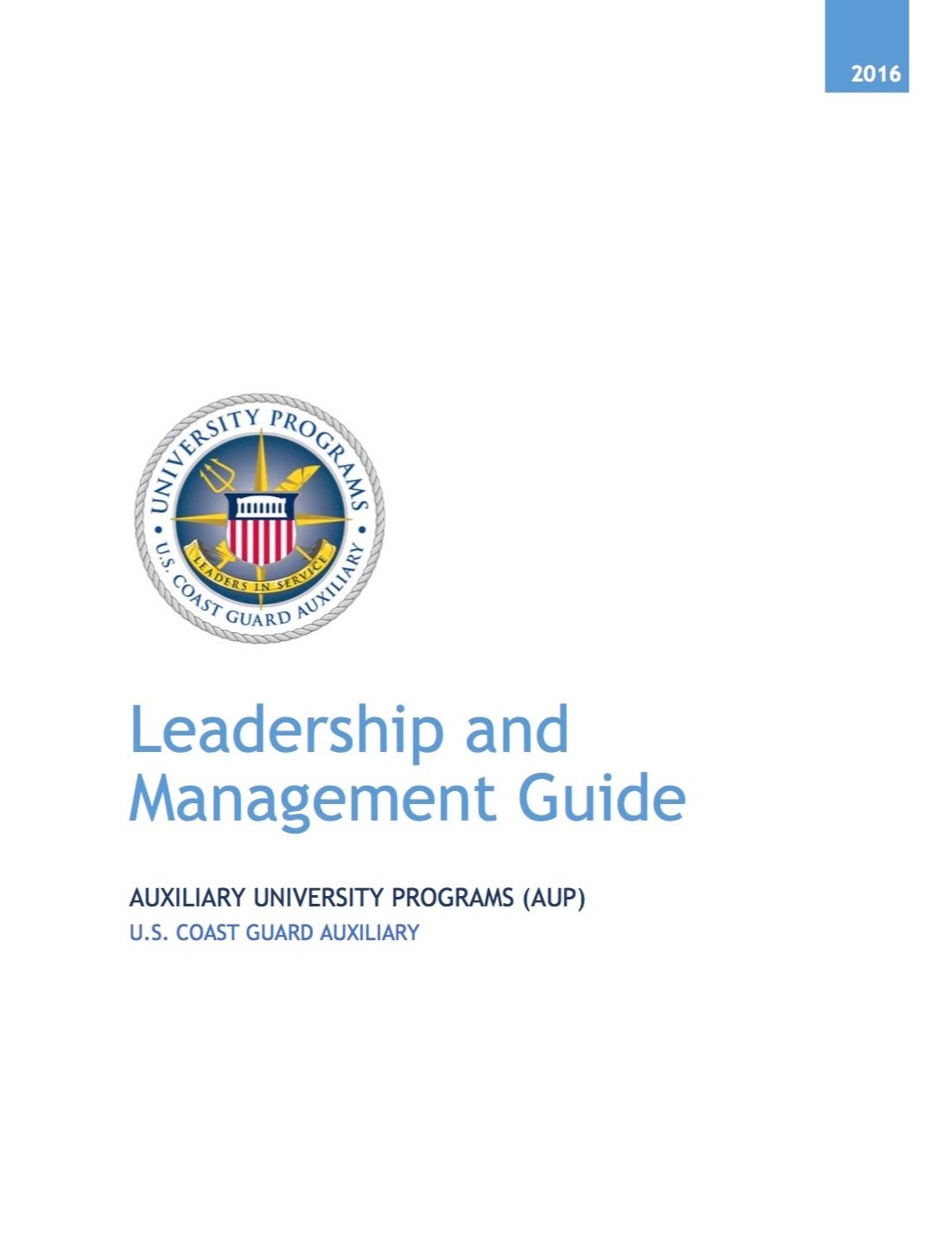Leadership Development Framework
The United States Coast Guard defines leadership as “you influencing others to achieve a goal.” The Auxiliary University Programs (AUP) strives to develop “leaders in service.” The Auxiliary University Programs, as a component of the United States Coast Guard, values the same leadership competencies as its parent service. AUP students achieve proficiency in these competencies in manners appropriate for students and Auxiliary members.
Leadership competencies are defined as “the knowledge, skills, and expertise” Auxiliary University Programs expects in its graduates and leaders. These competencies are the keys to success in the Coast Guard and other professional careers and are tracked via Leadership Evaluation Reports (LER).
The twenty-eight leadership competencies fall into four broad categories described below. For a full description of these competencies, please see the Program of Study.
Leading Self
Strong and successful leaders understand themselves and their own abilities. This includes an understanding of one’s own values, personality, and preferences. At the same time, one must have goals and aspirations for one’s Auxiliary and AUP memberships.
Leading Performance and Change
AUP students face unique challenges in their operations. To face these challenges, leaders must apply these competencies to their daily duties to perform to the utmost in any situation.
Leading Others
A part of leadership is the ability to work with and guide others towards a common goal. AUP students interact with Auxiliary members and each other in a variety of roles, whether as a student leader, staff officer, or peer. These interactions require positive professional relationships.
Leading the Coast Guard
AUP does not exist in a vacuum. As leaders gain experience in AUP, they must understand how it fits into a broader structure of flotilla, district, Auxiliary, and Coast Guard as a whole. At a local level, leaders must establish relationships with flotillas and public and private sector organizations. Leaders must understand how these relationships interact to create successful units. An awareness of the Auxiliary’s value to the nation and promoting that value become more important as one becomes more senior. Leaders must establish partnerships with those inside and outside AUP, the Auxiliary, and the Coast Guard.

